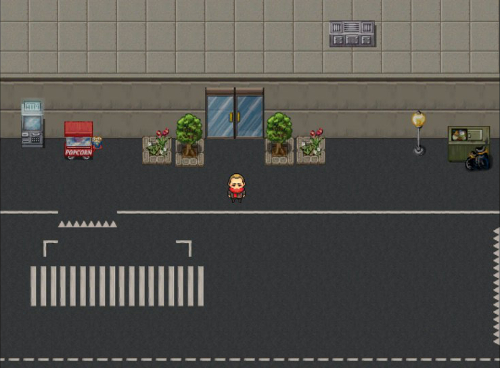 Series: Chameleon Moon, #1
Series: Chameleon Moon, #1
First Published: 1st October, 2014
Genre: Superhero / Novel
Available: Amazon.com | Amazon UK | Smashwords
People with superpowers are kept in quarantine in the city of Parole. When an assassination goes wrong, Regan is left with amnesia, and it might have something to do with the larger issues of the city.
It’s debatable in an ensemble cast whether anyone is a main character. I’m loosely saying they’re Regan and Evelyn, as a lot of the plot and scenes revolve around their stories, even if they’re from someone else’s perspective. But other characters also have large roles, so it’s open to interpretation. This is the second edition of the book.
Regan ends up with amnesia early in the story. It’s a good handling of amnesia in general, such as Regan processing how he feels about not remembering anything, and the way the memories trickle back. If he did have his memories, the plot wouldn’t be solved in five seconds, so it’s not used in that way. The personal impact of not remembering things like his family is the primary focus.
What I wasn’t fond of was the reason for the amnesia, because it’s caused by Hans. I disliked the scenes he was in and hoped they’d be over quickly, which unfortunately, they never were. One issue is that Hans has mind powers which mean he can give people amnesia, control their minds, and is generally unstoppable. Which makes it hard for other characters to stand up to him. Hence when he’s in a scene, it’s all about him, and it’s not going to end quickly.
Part of Regan’s struggle to remember his past reveals he may be asexual, as he realises he doesn’t find others sexually attractive. He’s also a lizard person with PTSD and anxiety.
Evelyn is a superhero with singing powers. She’s a trans woman and is in a poly relationship with two other women. I’m assuming she’s non-white as her skin is described as brown. One of the things she has to face is her past. She left her birth family behind, but ends up having to return. Evelyn is misgendered by one of her family, though these scenes are brief.
There’s a lot of diversity in the cast, including a non-binary person with they pronouns, someone with a double leg amputation, and multiple non-white people (though I was uncertain of exact races). PTSD is common, along with anxiety and depression. There are some references to suicide as part of this. It’s not clear whether the characters in relationships view themselves as gay, lesbian, bi, pan and so forth. Regan’s sexuality is the only one explicitly discussed. However, the relationships tend towards same gender or binary gender with non-binary.
Some of the books I’ve had recommended to me as lighter queer reads have turned out to have a constant threat of sexual violence. This one was noted to be somewhat darker, but it managed to avoid that particular issue. It has general violence, but that violence doesn’t focus around sexual violence.
On the issue of darkness, the characters may be living in a disaster zone, but the end tends towards the hopeful rather than the tragic. Named characters have a very good chance of survival. Unnamed characters may not be so lucky.
I enjoyed a lot of things about the book. Parole is an interesting setting and it was good to find out more about the mysteries surrounding it. There’s a lot of character time, as the characters talk and figure things out. I did feel it got confusing towards the end, in terms of exactly what was happening, and everyone’s locations. I also really didn’t like Hans, particularly because his powers made it hard for anyone to resist him. But my criticisms are minor, and for the most part, I’d be interested in seeing where it goes next.
 First Published: December, 2015
First Published: December, 2015 Developer: WZO Games Inc
Developer: WZO Games Inc